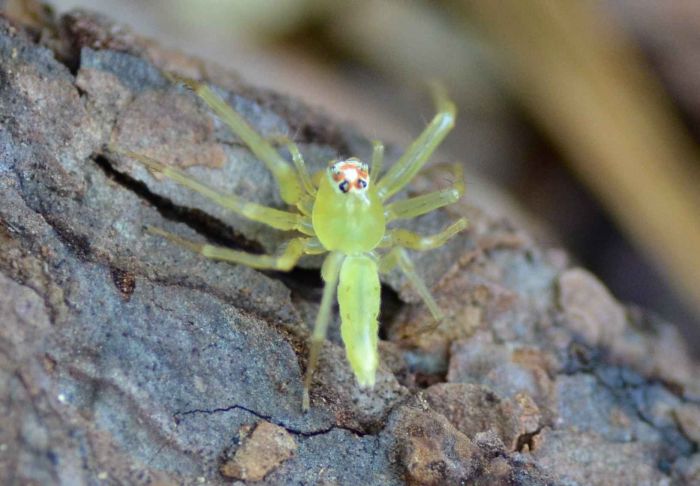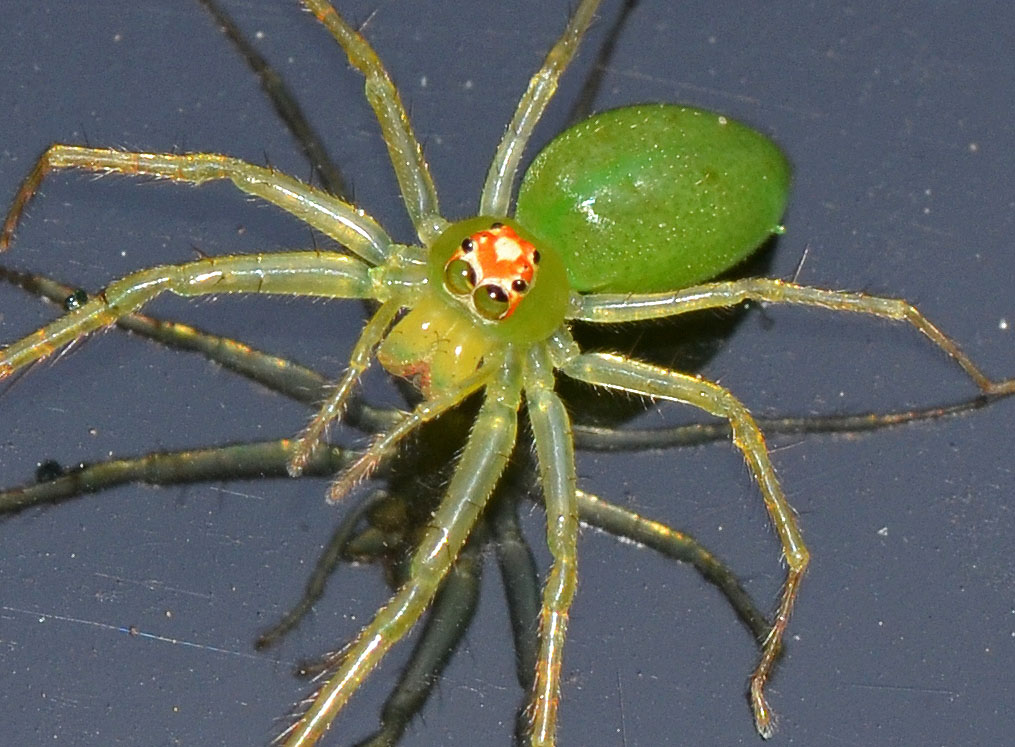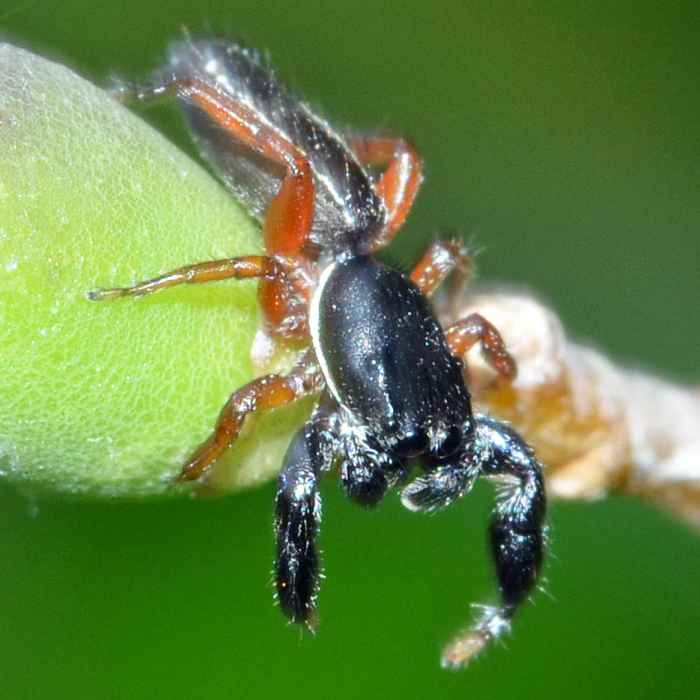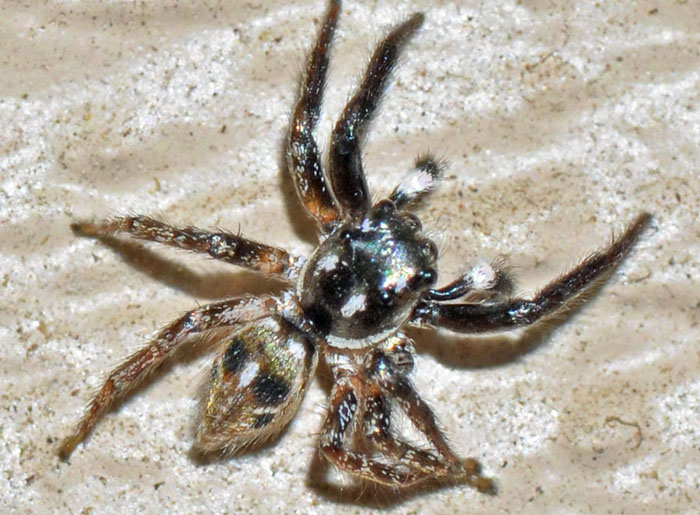 Anasaitis canosa (Twin-Flagged Jumping Spider). | This little spider sat on our house wall. The term 'twin-flagged' refers to the two white marks on the body. They hunt ants, flies, and beetles. Wikipedia gives detailed information on their hunting techniques. About 13% of all spider species are jumping spiders. They have excellent vision and use silk tethers to secure jumps. The small photo dates 06/23/11.
bugguide (large photo): http://bugguide.net/node/view/991922 bug guide (small photo): http://bugguide.net/node/view/6793 | ||
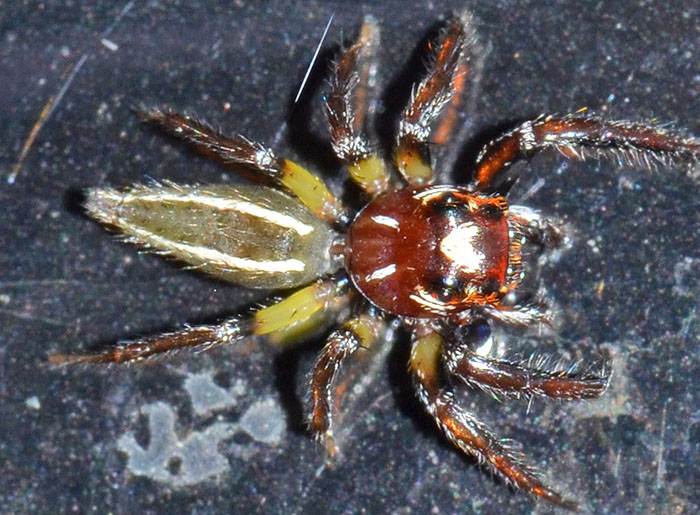 Colonus sylvanus (Sylvana Jumping Spider). | Usually associated with trees, I found this little spider on my truck. Its previous name was Thiodina sylvana. Colonus sylvanus is common throughout the Southern and Eastern US. The month of May appears to be the prime time for finding this species. bug guide (this photo): https://bugguide.net/node/view/1525803 D. B. Richman and R. S. Vetter, J. Arachnol. 32, 418, 2004: https://tinyurl.com/Thiodina | ||
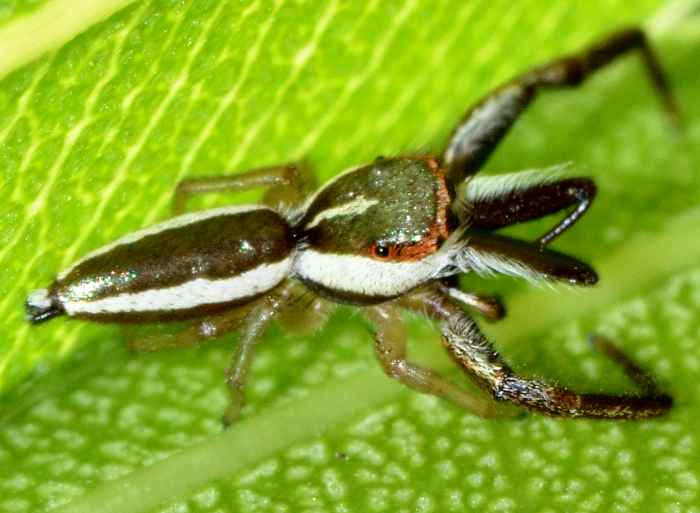 Hentzia palmarum (Common Hentz Jumper) ♂. | Another tiny jumping spider: Hentzia palmarum. This one is a male. There are only four species of Hentzia in the US and only two outside of Florida and Georgia. The genus refers to Nicholas Hentz (1797-1856), a French-born entomologist, engraver, and painter, who named over 100 species of spiders. The small photo was taken on 07/16/11 at 5 pm.
bug guide (large photo): http://bugguide.net/node/view/633814 cirrusimage: http://www.cirrusimage.com/spider_jumping_h_palmarum.htm bug guide (small photo): http://bugguide.net/node/view/546690 | ||
 Hentzia palmarum (Common Hentz Jumper) ♀. | ... and this is a female of Hentzia palmarum. It is paler, hairier, and 10-20% larger than the male. Some females have forward pointing triangular patterns on their abdomen. In this specimen the markings are more stripe-like. bug guide (this photo): http://bugguide.net/node/view/560203 | ||
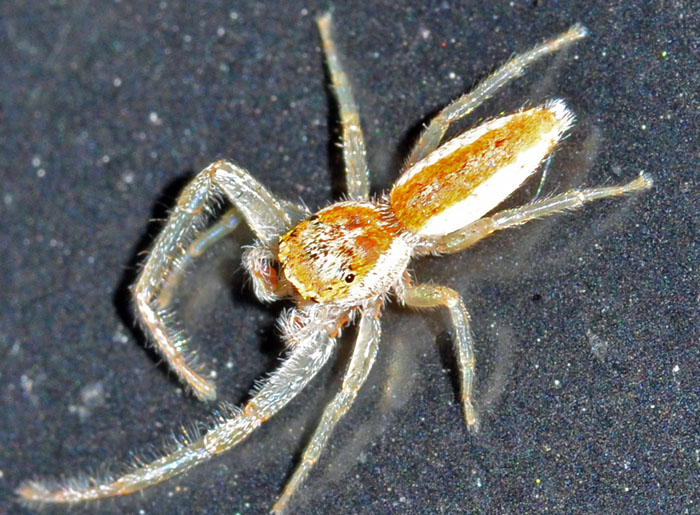 Hentzia mitrata ♂. | This species is usually smaller and lighter in color than H. palmarum. Males are bright brown. The edges of their body and legs are white.
bug guide (this photo): http://bugguide.net/node/view/991910 | ||
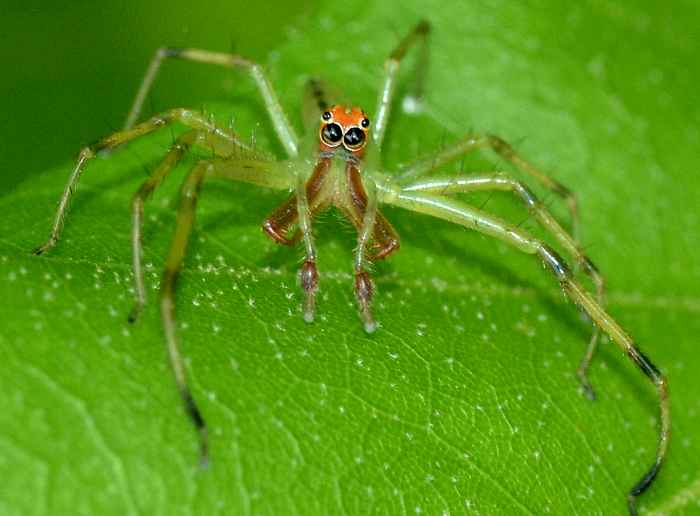 Lyssomanes viridis (Magnolia Green Jumper) ♂. | This cool spider is a male Magnolia Green Jumper (Lyssomanes viridis). Their legs and body are green and somewhat translucent, while the black eyes are surrounded by a small, orange and white patch. They are only a 4-8 mm in size. The small photos were taken on 07/18/11 (left) and 05/23/18 (right).
bug guide (large photo): http://bugguide.net/node/view/632192 bug guide (small, left photo): http://bugguide.net/node/view/547706 | ||
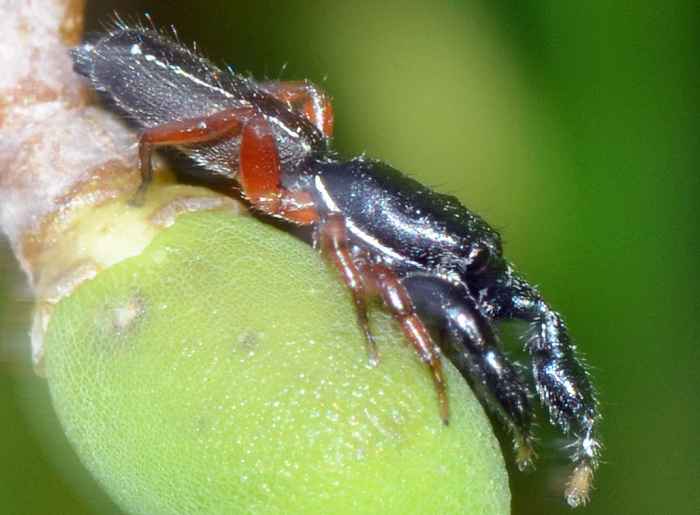 Metacyrba floridana. | Metacyrba floridana is a less common find. It seems to exist primarily in Florida and neighboring states.
bug guide (these photos): http://bugguide.net/node/view/686187 | ||
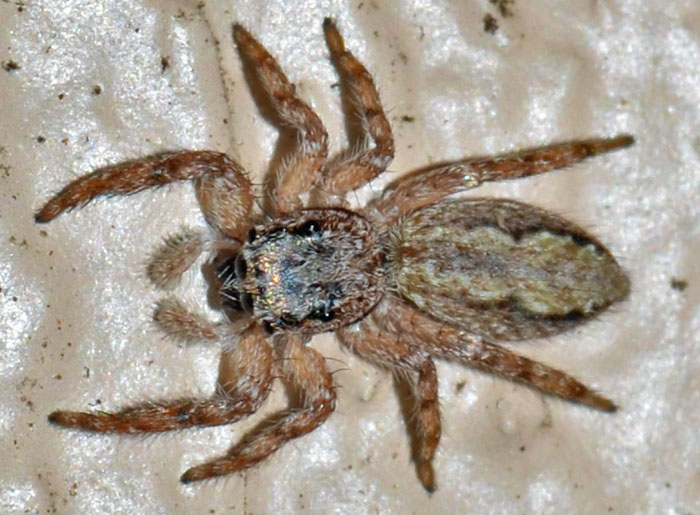 Platycryptus undatus (Tan Jumping Spider). | Citing from wikipedia: "Like some other species of jumping spider, this species appears to exhibit curiosity towards humans who come into its visual field (jumping spiders all have very good vision.) It favors vertical surfaces such as fences, walls, etc. and because of its habits it is easily seen. It does not frantically flee humans and may be gently "herded" onto a hand, where it may make a thorough exploration and even jump from finger to finger. These spiders are not at all inclined to bite, but even though they are rather small they can deliver a defensive bite if they are pinched or squeezed." bug guide (this photo): http://bugguide.net/node/view/965210 wikipedia: http://en.wikipedia.org/wiki/Platycryptus_undatus |



